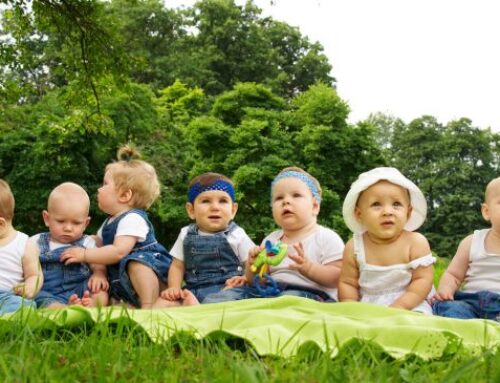A Statistics Canada report is revealing once again that Canada’s birth rate continues to decline, now to a record low of 10.5 live births per 1,000 population in 2004, down from 10.6 in 2003.
It is part of a worrying trend. StatsCan is also reporting that the average age of women giving birth has risen to 29.7 years of age and that the percentage of women becoming mothers before the age of 24 went down from 40.7 per cent in 1979 to 20.6 per cent in 2004. More women are having children after 35, as they seem to be delaying childbearing until their careers are well under way.
Yet, the fertility rate – the number of children a woman will have in her childbearing years – remained the same in 2004 as it did in 2003, at 1.53 children per woman. That is well below the “replacement level” of 2.1 children that demographers say a healthy society requires to merely maintain its population over time.
Economists say that countries with fertility rates significantly below replacement levels will have a difficult time meeting the financial demands made by an aging population in terms of pensions and healthcare costs, because there won’t be enough workers to sustain government programs to assist the elderly.
Canada’s response, like that of many European nations, is to have massive immigration provide the necessary workers. But that is a temporary solution, because such immigrant workers are themselves close to retirement age.
Furthermore, while visible minorities and immigrants have a slightly higher fertility rate, StatsCan notes that such populations quickly regress to the Canadian norm and have smaller families themselves as they adopt the social mores of their adopted country.
In 2004, visible minorities had average fertility rates of 1.7 children, down from 1.94 in 1996. This is in contrast to what happens with immigrants to the United States where, according to a report from the Centre for Immigration Studies, many newcomers have higher fertility rates than not just their fellow Americans, but also those in the country from which they emigrated.
Canada’s future is quite literally at stake. Not having children will deprive the Canada of 2020 and beyond of workers, thereby threatening our economy. It will put the country at a competitive disadvantage, as the talent pool of future employees (teachers, scientists, doctors, nurses, politicians) will be significantly smaller.
It will also rob children of siblings and the joy of larger families. Dr. Leon Kass, a former bioethics advisor to President George W. Bush, has warned that the very concept of an extended family – cousins, aunts and uncles – might disappear within a century.
For all the concerns that economists and demographers have about depopulation, few are willing to identify its two main causes: that many pregnancies end in surgical or chemical abortions and that women are delaying or simply saying no to motherhood for whatever reason. The anti-child mentality that abortion engenders has taken root and it will take a seismic cultural shift to turn things around, but turn things around we must. We quite literally cannot afford society’s continued indifference to Canada’s trend toward depopulation.




